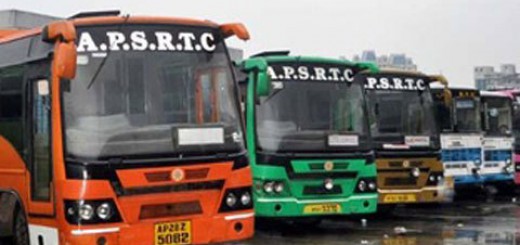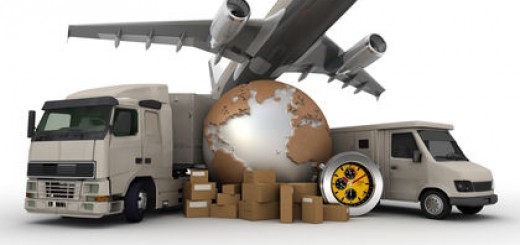Difference between Trucking Company and Logistics Company
The transportation industry plays a pivotal role in connecting businesses and consumers across the globe, ensuring the smooth movement of goods and materials. Within this vast industry, two key entities, trucking companies and logistics companies, are essential for efficient supply chain management. While often used interchangeably, it is important to understand the distinction between trucking and logistics company.
Definition of Trucking Company and Logistics Company
A trucking company, as the name suggests, focuses primarily on the physical transportation of goods. These companies own and operate a fleet of trucks to move products from one location to another. Their main responsibility is to ensure that goods are delivered safely and on time. They handle everything related to the actual movement of freight, such as loading, driving, and unloading.
Unlike a trucking company, which focuses primarily on transportation, a logistics company takes a broader approach. Logistics companies are responsible for managing the entire supply chain, from procurement to delivery. They coordinate multiple aspects of the shipping process, including inventory management, warehousing, packaging, and transportation. Their goal is to streamline operations and ensure efficient movement of goods.
Key Differences between a Trucking Company and a Logistics Company
Primary focus and scope of operation
The primary focus of a trucking company is the physical transportation of goods, while a logistics company takes a more holistic approach, managing the entire supply chain.
Core services and areas of expertise
Trucking companies specialize in the movement of goods, primarily using their own fleet of trucks. On the other hand, logistics companies provide a comprehensive range of services, including transportation management, inventory control, and supply chain optimization.
Relationship with customers and stakeholders
Trucking companies typically have a direct relationship with customers, as they handle the physical delivery of goods. Logistics companies, however, work closely with multiple stakeholders throughout the supply chain, building strategic partnerships and coordinating operations between various parties.
Understanding the difference between trucking companies and logistics companies is essential for anyone involved in the transportation industry. While they both have important roles to play, their functions, responsibilities, and areas of expertise vary. By recognizing these distinctions, businesses can make informed decisions when choosing their transportation partners and optimizing their supply chain operations.5. The Importance of Collaboration between Trucking and Logistics Companies
Understanding the interdependence of trucking and logistics companies
In the world of transportation and supply chain management, trucking, and logistics companies go hand in hand like peanut butter and jelly. They rely on each other to get the job done efficiently and effectively. While trucking companies focus on the actual movement of goods from one place to another, logistics companies handle the intricate coordination, planning, and optimization of the entire supply chain process.
Think of it this way: if trucking companies are the wheels that keep the shipment rolling, then logistics companies are the brains that ensure everything runs smoothly. Without collaboration and integration between these two entities, the supply chain would be fragmented and inefficient.
Benefits of effective collaboration and integration
Effective collaboration between trucking and logistics companies brings a plethora of benefits to the table. By combining their expertise, resources, and knowledge, they can optimize routes, streamline processes, and reduce costs. This collaboration allows for better visibility and tracking of vehicles, leading to improved customer satisfaction and timely deliveries.
Moreover, working together allows trucking and logistics companies to identify and address potential issues before they become major problems. They can proactively plan for disruptions, such as traffic congestion or inclement weather, and find alternative solutions that keep the supply chain moving.
Making Informed Decisions for Your Supply Chain Needs
Understanding the difference between trucking and logistics companies is essential for making informed decisions about your supply chain needs. Collaboration and integration between these entities bring numerous benefits, including optimized routes, streamlined operations, and improved customer satisfaction.
By staying updated on future trends and addressing challenges together, the trucking and logistics industry can continue to evolve and meet the demands of a rapidly changing world. So, when it comes to your supply chain, remember to find the perfect trucking and logistics duo, because together, they can move mountains (or at least your goods) with ease.8. Conclusion: Making Informed Decisions for Your Supply Chain Needs.
Also Reads:- Technology Integration Capabilities Offered by Logistics Providers
Conclusion
Understanding the difference between a trucking company and a logistics company is crucial for effective supply chain management. While trucking companies focus on the transportation of goods, logistics companies provide comprehensive services that encompass the entire supply chain. By recognizing their distinct roles and responsibilities, businesses can make informed decisions and choose the right partners to optimize their supply chain operations.
Collaboration between trucking and logistics companies is key to achieving seamless integration and maximizing efficiency. As the industry continues to evolve, staying abreast of future trends and addressing emerging challenges will be vital. By leveraging the expertise and capabilities of both trucking and logistics companies, businesses can navigate the complex landscape of the transportation industry with confidence.




Recent Comments